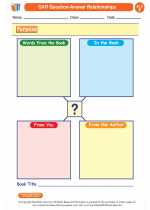Context Clues Study Guide
What are Context Clues?
Context clues are hints found within a sentence, paragraph, or passage that help to understand the meaning of an unfamiliar word. These clues can be found in the words or sentences surrounding the unfamiliar word.
Types of Context Clues
There are several types of context clues:
- Synonym Clues: When a familiar word with a similar meaning to the unfamiliar word is used nearby.
- Antonym Clues: When an unfamiliar word is contrasted with a familiar word with the opposite meaning.
- Definition or Explanation Clues: When the meaning of the unfamiliar word is directly explained.
- Example Clues: When an example is provided to help understand the meaning of the unfamiliar word.
- Inference Clues: When the reader must make an educated guess based on the surrounding text.
How to Use Context Clues
When encountering an unfamiliar word, follow these steps to use context clues:
- Read the surrounding sentences or paragraph carefully.
- Look for familiar words that can provide clues to the meaning of the unfamiliar word.
- Use the context clues to make an educated guess about the meaning of the unfamiliar word.
- Check your guess by reading the sentence with your chosen meaning for the unfamiliar word. If it makes sense, you've likely found the correct meaning.
Practice Activity
Here's a sentence for you to practice using context clues:
"The young girl was very eloquent and spoke passionately about the environment."
What can you infer about the meaning of the word "eloquent" based on the context clues in this sentence?
Conclusion
Context clues are a valuable tool for understanding unfamiliar words while reading. By paying attention to the surrounding text, readers can make educated guesses about the meanings of unfamiliar words, leading to improved comprehension and vocabulary development.
[Context Clues] Related Worksheets and Study Guides:
.◂English Language Arts Worksheets and Study Guides Sixth Grade. Context Clues
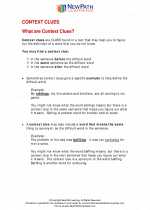
 Worksheet/Answer key
Worksheet/Answer key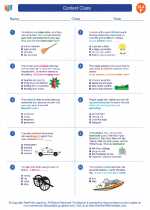
 Worksheet/Answer key
Worksheet/Answer key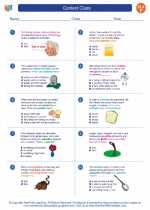
 Worksheet/Answer key
Worksheet/Answer key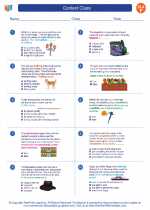
 Worksheet/Answer key
Worksheet/Answer key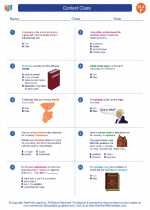
 Worksheet/Answer key
Worksheet/Answer key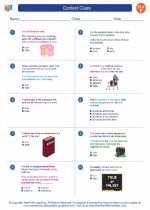
 Worksheet/Answer key
Worksheet/Answer key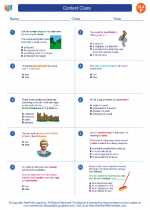
 Worksheet/Answer key
Worksheet/Answer key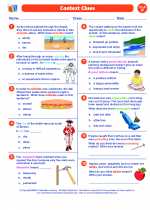
 Worksheet/Answer key
Worksheet/Answer key